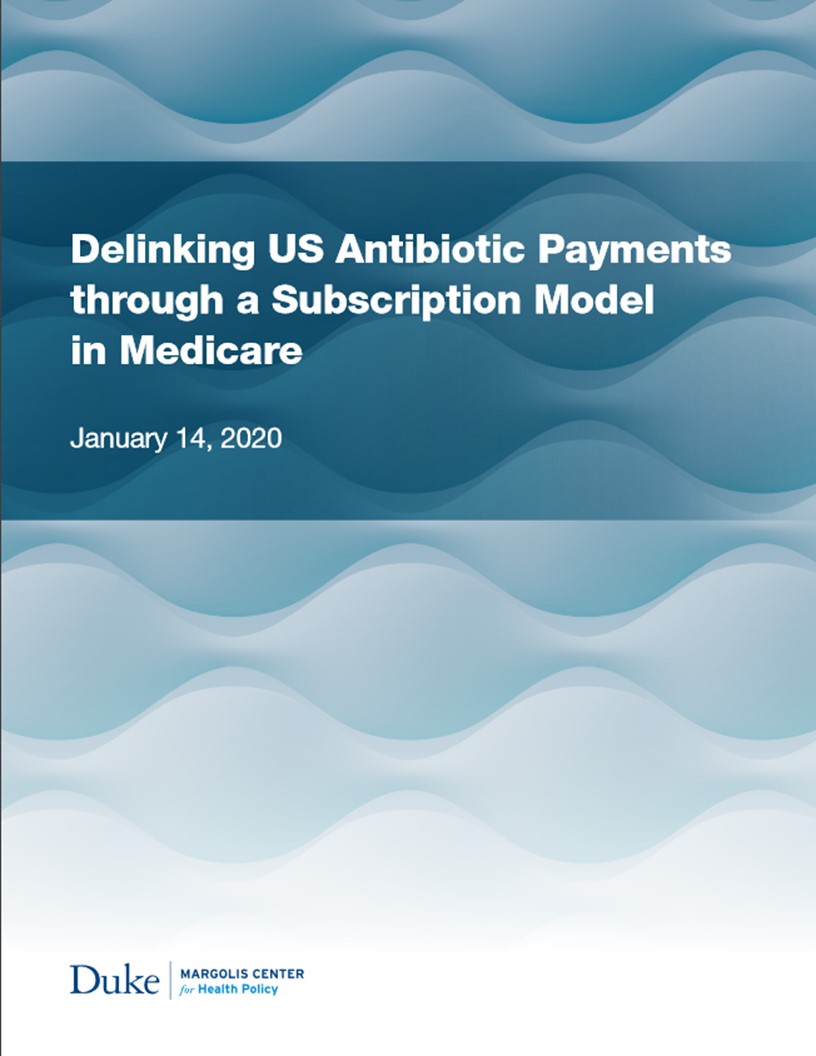
Drug-Resistant Infections & Antimicrobial Resistance (AMR)
Drug-resistant infections and antimicrobial resistance (AMR) are increasingly concerning. According to the Centers for Disease Control and Prevention (CDC), each year drug-resistant infections are responsible for 35,000 lives lost in the Unites States. And the rise of AMR threatens the sustainability of modern medical procedures like surgery and chemotherapy.
A multi-pronged approach is necessary to mitigate drug-resistant infections and combat AMR. Policymakers must act to reduce the incidence of drug-resistant infections, track the spread of antibiotic resistance, preserve the effectiveness of existing antibiotics by enabling antibiotic and diagnostic stewardship, and foster innovative novel antibiotic and bacterial diagnostic development.
Unfortunately, too few innovative novel antibiotics and bacterial diagnostics are being developed due in part to challenging market conditions. Policies and incentives that improve the sustainability of the market for innovative, critical antibiotics and bacterial diagnostics are urgently needed.

Bolstering Public Health Preparedness by Investing in Post-Market Incentives for Novel Antibiotics
Durg-resistant infections and antimicrobial resistance (AMR) threaten global public health, and access to innovative, novel antibiotics is critical to prepare for future health emergencies. On October 23, 2023, Duke-Margolis published “Bolstering Public Health Preparedness by Investing in Post-Market Incentives for Novel Antibiotics” to describe opportunities for policymakers to establish pull incentives for novel antibiotics that advance public health preparedness and the bioindustrial base.
Recommended Post-Market Incentive Strategies to Support the Development of Innovative Antibiotics
Combatting the growing threat of antimicrobial resistance (AMR) requires generation of innovative antibiotics, but a low expected return on investment limits commercial development. Existing incentives have not adequately addressed the financial challenges developers encounter. Reviving investment and development in this space will require new approaches that create a sustainable market for antibiotic products. Over the past year and a half, with support from the Wellcome Trust, the Duke-Margolis Center for Health Policy has convened experts from across the AMR landscape to develop domestic policy approaches and identify opportunities for global coordination of promising market incentives. This report describes promising existing or proposed post-market incentives, limitations to incentive approaches, and opportunities to facilitate incentive implementation.

Delinking US Antibiotic Payments through a Subscription Model in Medicare
The Center for Disease Control and Prevention recently reported on the urgency of antimicrobial resistance, a public health issue that impacts nearly three million Americans each year. New treatment approaches could help address the problem, but antibiotics remain an unattractive area for development due to concerns about potential return on investment (ROI). Alternative pricing and reimbursement mechanisms for antibiotics have the potential to align ROI with public health value, while encouraging appropriate use. This analysis examines a subscription payment model within Medicare as a solution to lack of development incentives. If reimbursement for antibiotics is optimized through the creation of new payment pathways, the development process will be de-risked for manufacturers, leading to increased innovation and a more robust pipeline of antimicrobial products, which will be critical to effectively combat antimicrobial resistance.

Value-Based Strategies for Encouraging New Development of Antimicrobial Drugs
Resistance to current antimicrobial drugs is a growing source of morbidity, mortality, and healthcare costs. Challenging market dynamics have led to a weak pipeline of drug candidates to respond to these threats. Combined, these two trends represent a significant and growing threat to US and global health preparedness. The Duke-Margolis Center for Health Policy is developing U.S. policy approaches that could provide better economic incentives to antimicrobial developers that successfully bring effective drugs to the market, providing a societal benefit that exceeds the cost of the incentive. Our Priority Antimicrobial Value and Entry (PAVE) Award proposal combines a market entry reward with population-based payments from public and private payers that phase in over time. his model addresses the fundamental need for public investment in drugs that combat resistant bacterial infections by resolving the current conflict between the drivers of ROI and strong stewardship programs, while reinforcing the “volume to value” shift in health care payments, and leveraging, rather than replacing, private financing.




